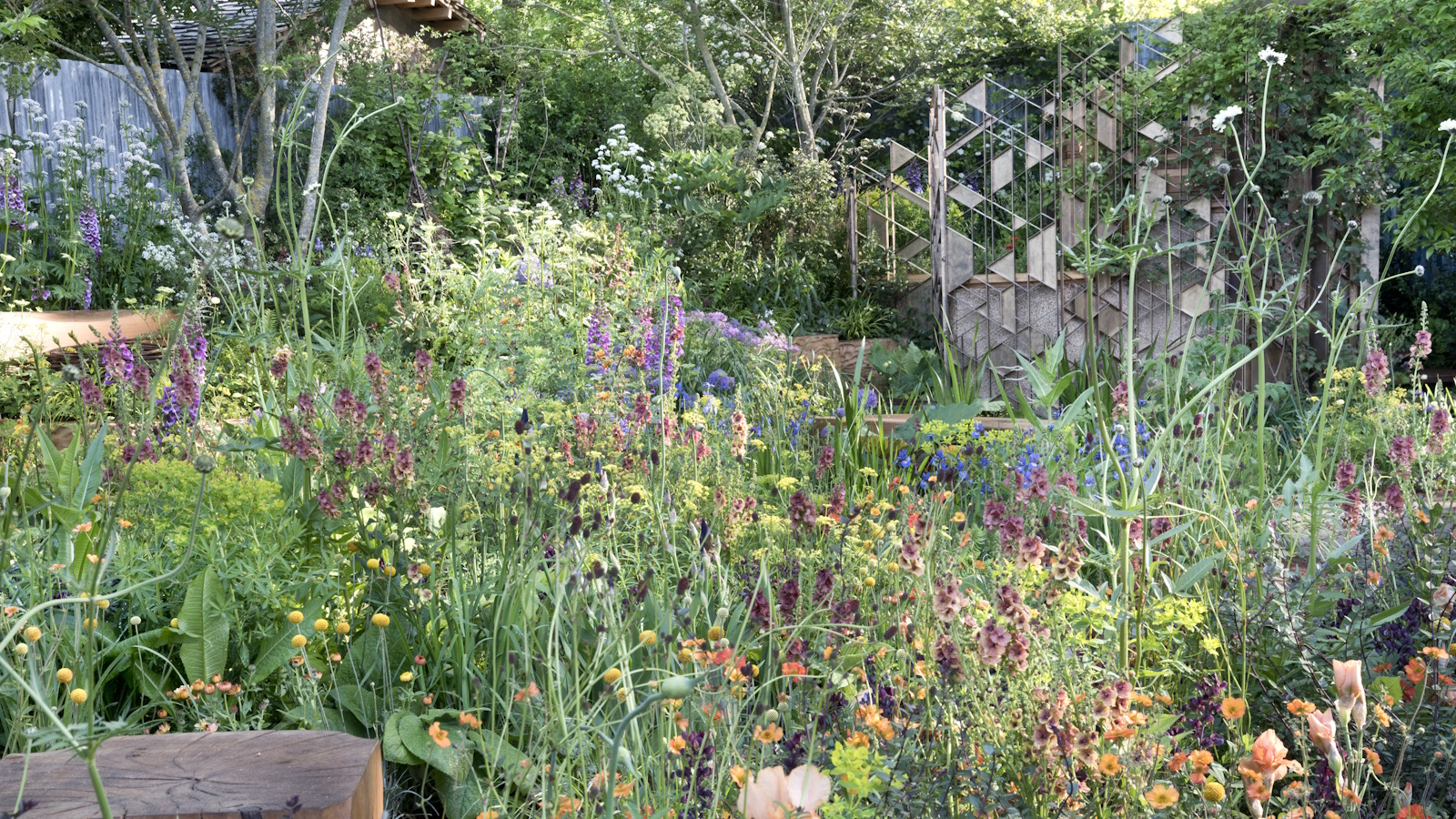
It’s no secret or exaggeration to say nature is healing. There are many natural, herbal remedies that have been used for centuries around the world to treat all kinds of ailments - though I’m not going to talk about these. I’m honing in on the calming, nurturing, restorative power of plants and gardening, which has been scientifically proven to improve our mental health. It’s what drew me to gardening two decades ago, and what keeps me here.
Since I trained as a floral designer, I’ve run floristry workshops for amateur gardeners and flower enthusiasts, and every one of these is designed with mental health benefits in mind. I select flowers, plants and foliage based on their texture and scent, and I have seen firsthand the positive mental effects working with these plants can have on people.
The act of growing and nurturing a garden has become so essential to my life that it dictated our recent house purchase. Within my new garden, I grow lots of herbs, scented flowers, and foliage for cutting. So, for World Mental Health Day, I have curated seven of the best plants for mental health, chosen for their sensory qualities, as well as what they bring to the garden.
1. Oregano
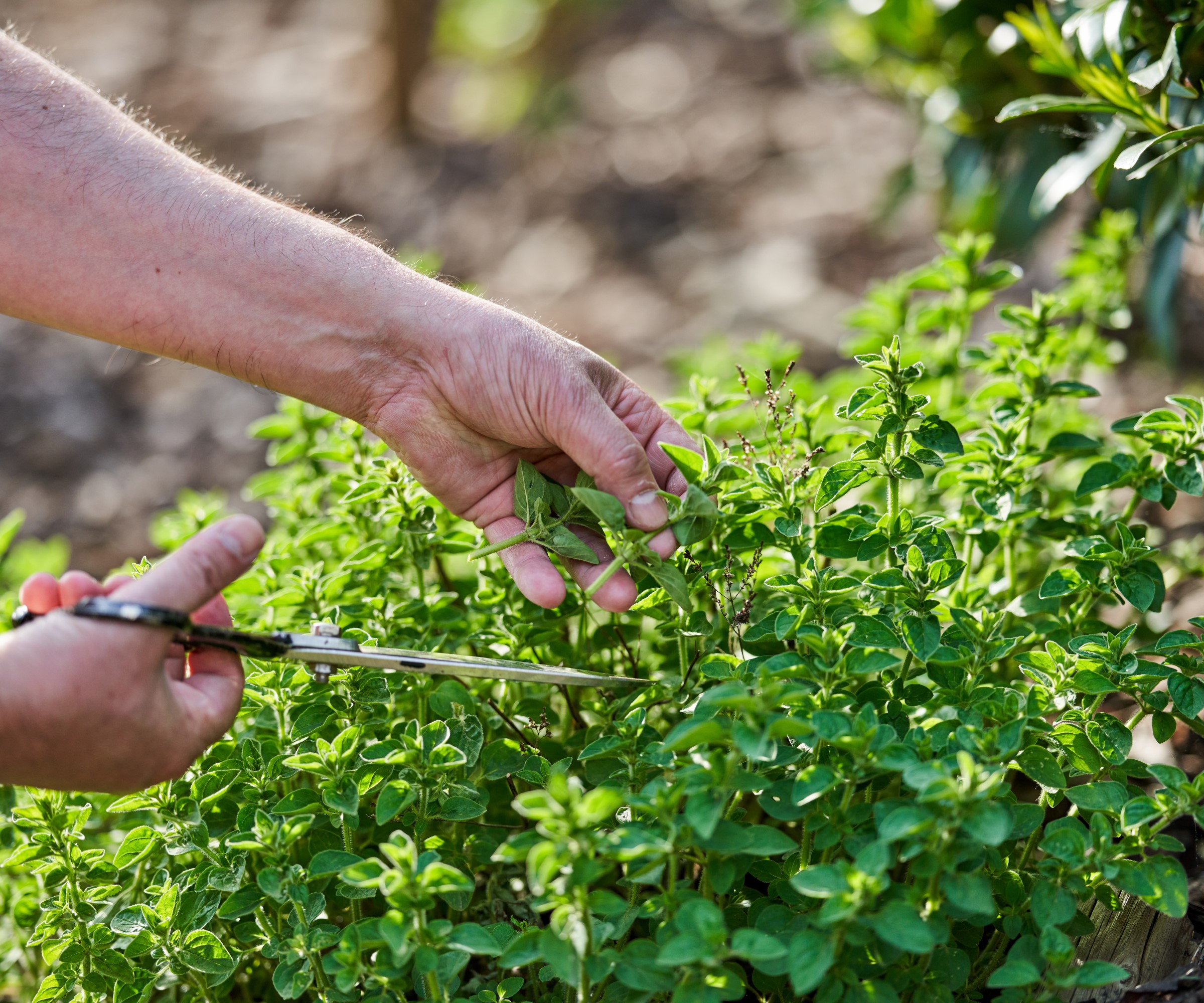
Plants that fulfil the senses are an absolute must in my backyard. I grow a lot of herbs, and some of them I let run wild, such as oregano. Each year it self seeds all around the rockery and into pebbled areas of my yard. I leave it to grow, because walking past it and running a stem in my hands releases the most relaxing, aromatic scent.
Giving self-seeding herbs a bit of free reign to multiply simply adds charm to a garden, and gives it a much wilder, more relaxing feel. I like letting nature take charge in certain areas of the yard and just seeing what happens. The purple flowers of oregano are also extremely pretty, and attract lots of bees.
Knowing how to grow oregano, Origanum vulgare, isn't difficult and is a good choice for beginner gardeners. It thrives in US hardiness zones 4-10 and, as I can absolutely attest, it enjoys poor soil. It also likes a decent amount of sunshine.
You can find oregano seeds at Walmart.
Also try: Rosemary and sage for an aromatic scent.
2. Lavender
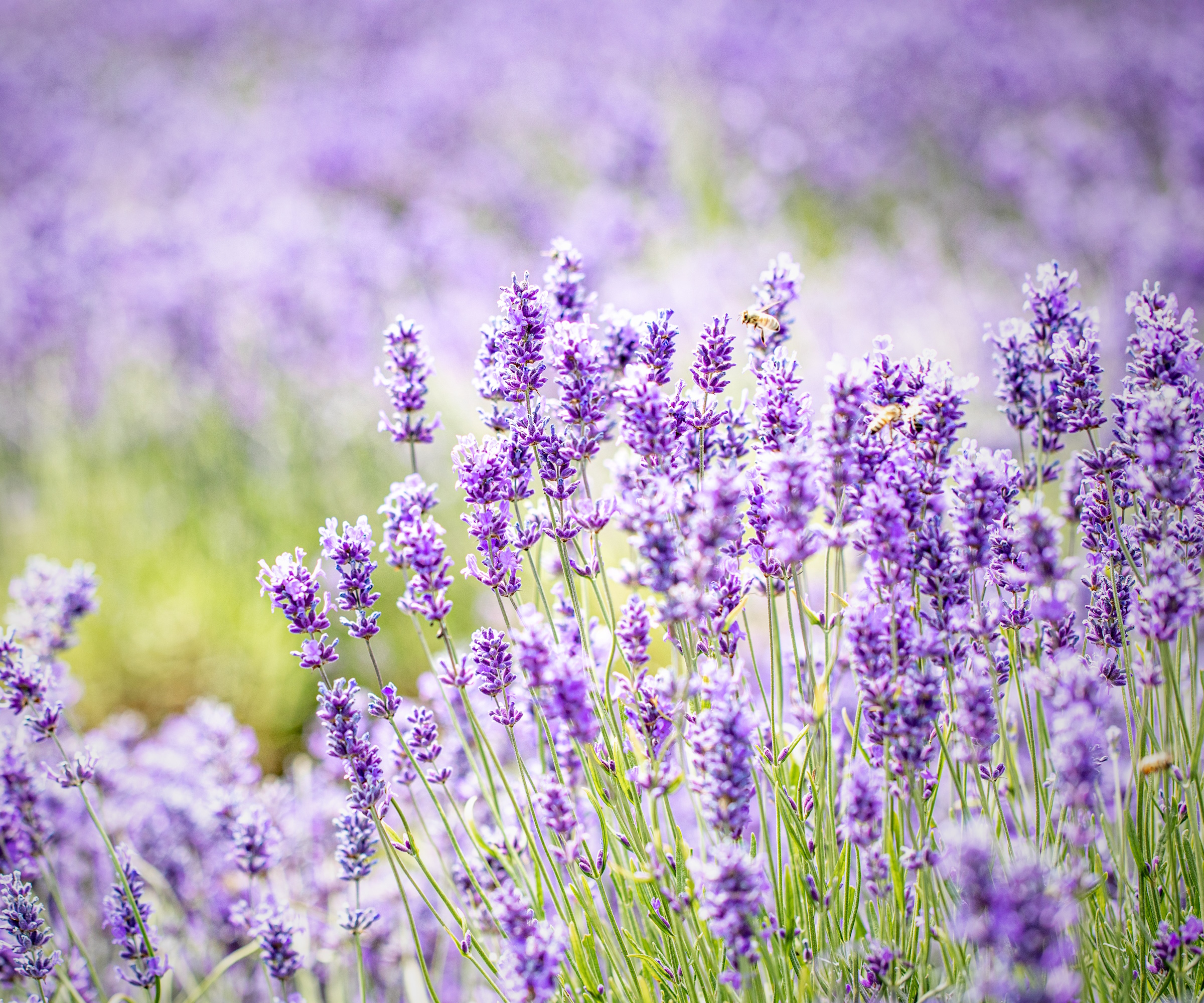
Lavender has to be on the list of the best plants for mental health as a non-negotiable.
It is known the world over for its stress-relieving qualities; its scent can slow down the heart rate and lower blood pressure. It is also widely renowned for aiding sleep.
Lavender varieties will also have a place (or many places) in my garden, as a way of attracting bees. I have a huge, potted lavender shrub right by the front door, and watching the different kinds of bees that visit over the summer is a reminder to stay in the present and appreciate the vital work these tiny creatures do for us - a perfect example of mindful gardening. It is usually hardy in US hardiness zones 5-9.
Also try: Russian sage and chamomile for a calming effect.
3. Lamb’s ear
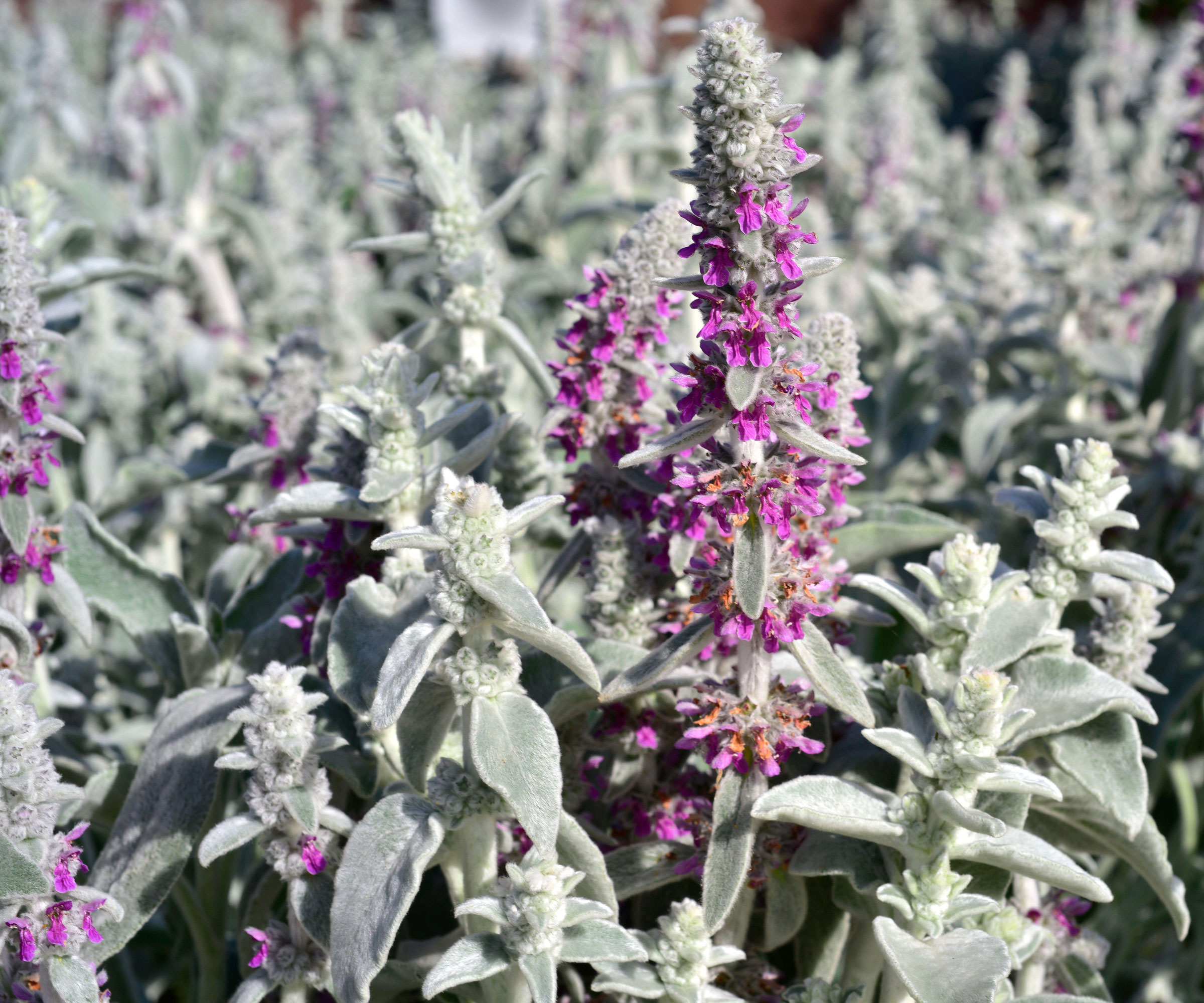
Lamb's ears, or Stachys byzantina, is a wonderfully tactile herbaceous perennial to include if you're looking for comforting textures to add to a sensory garden.
The leaves are a cool shade of silvery blue-green and are covered in lots of tiny, soft hairs making them smooth and velvet-like to the touch. Plants also produce vivid purple flowers in the summer, to add to their relaxing charm. I find them incredibly soothing to touch. They are also drought tolerant, so would make for a soft textural addition to a dry garden. Lamb's ear is hardy in US hardiness zones 4-8.
You can find lamb's ear seeds at Amazon.
Also try: Dusty miller and pelargoniums for soft, velvety leaves.
4. Bamboo
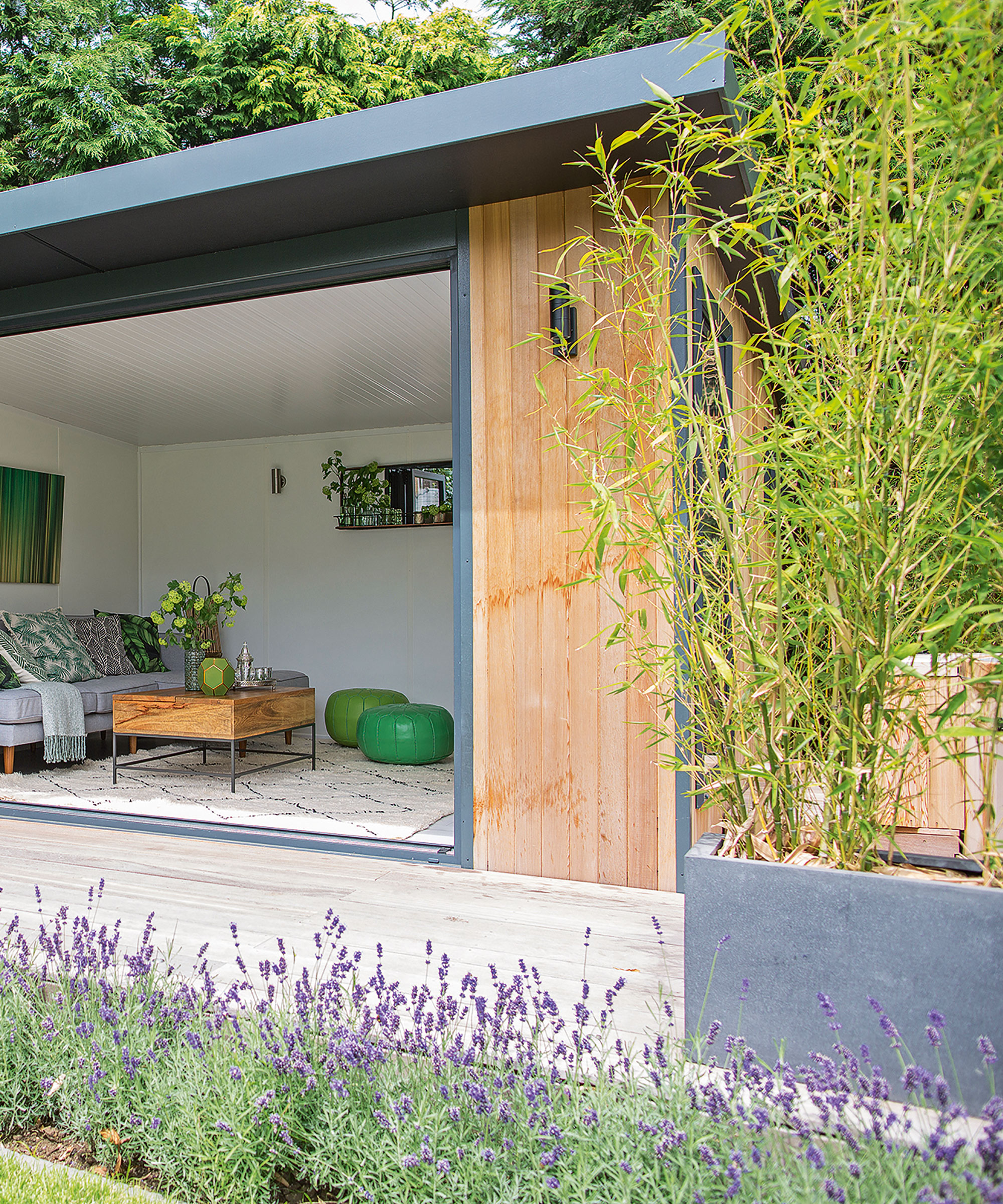
This might be a controversial addition to the list. Bamboo, when left to its own devices and not properly contained, can be very invasive. However, I happen to adore it for the mesmerizing sound the canes make in the breeze.
I planted bamboo for privacy, to create a natural screen in our urban backyard when I lived in London. I grew a variety of Phyllostachys Nigra or black bamboo, such as this one from Fast Growing Trees, in four very large, modern planters.
The bamboo worked very well to create privacy, but what it also did was create beautiful, soft sound effects whenever there was any wind as the canes knocked gently together. It was unexpectedly soothing, and I often recommend bamboo for this reason. It can be easily grown in US hardiness zones 4-10.
Also try: Silver birch for natural garden acoustics.
5. Star jasmine
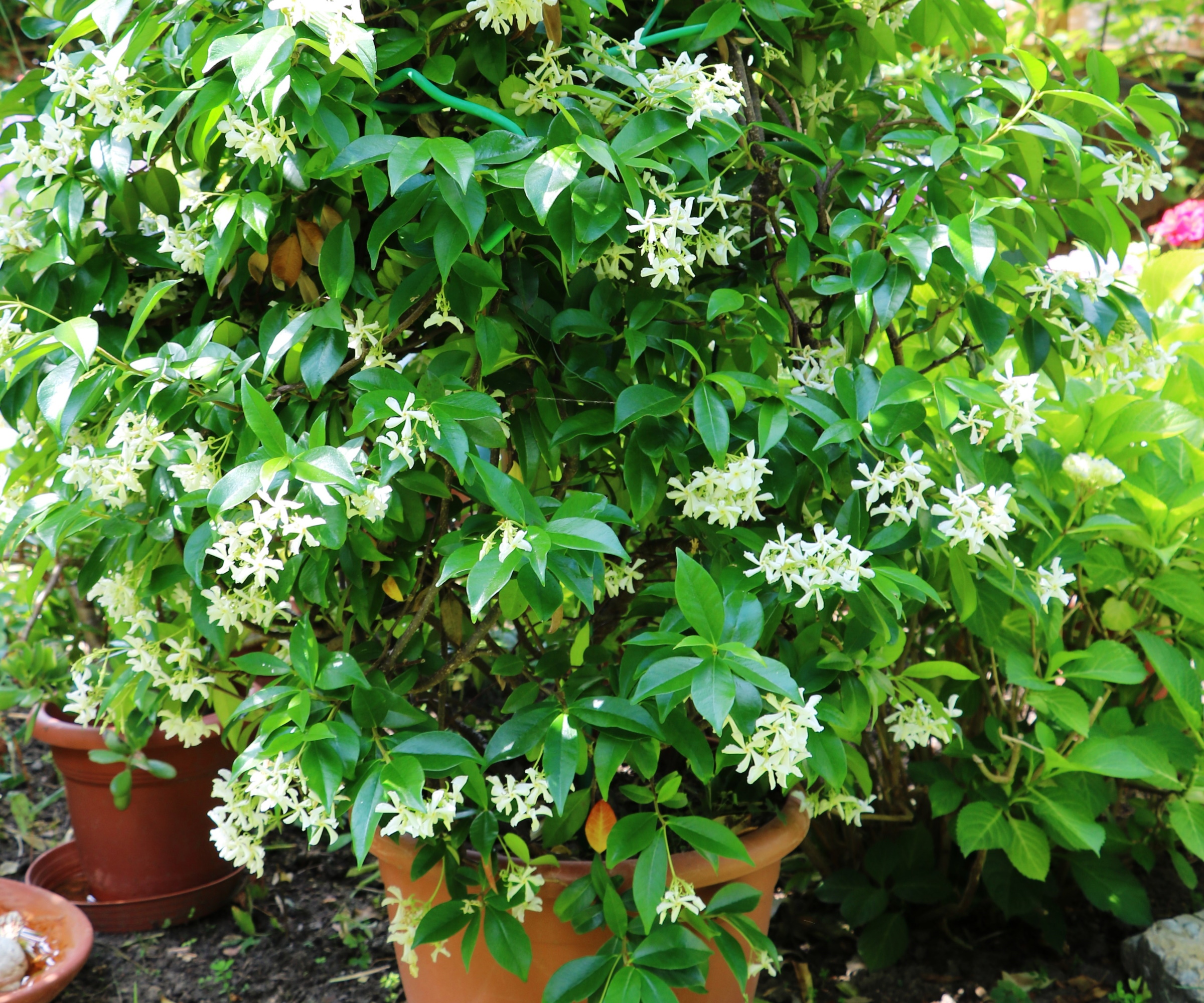
There are very few scents in my backyard that can beat that of star jasmine in full bloom. Trachelospermum jasminoides as it is also known, has a heady, rich fragrance in the height of summer, which intensifies at sundown.
I've grown it for many years, and always on a patio close to a back door, so that I can sit beside it with a herbal tea and breathe in the fragrance of rich honey and vanilla after a busy day. It always helps to reduce my anxiety levels, and I've found it can also have a soporific effect. Star jasmine is winter hardy in US hardiness zones 8-10.
Also try: Honeysuckle and sarcococca for a soothing scent
6. Butterfly bush
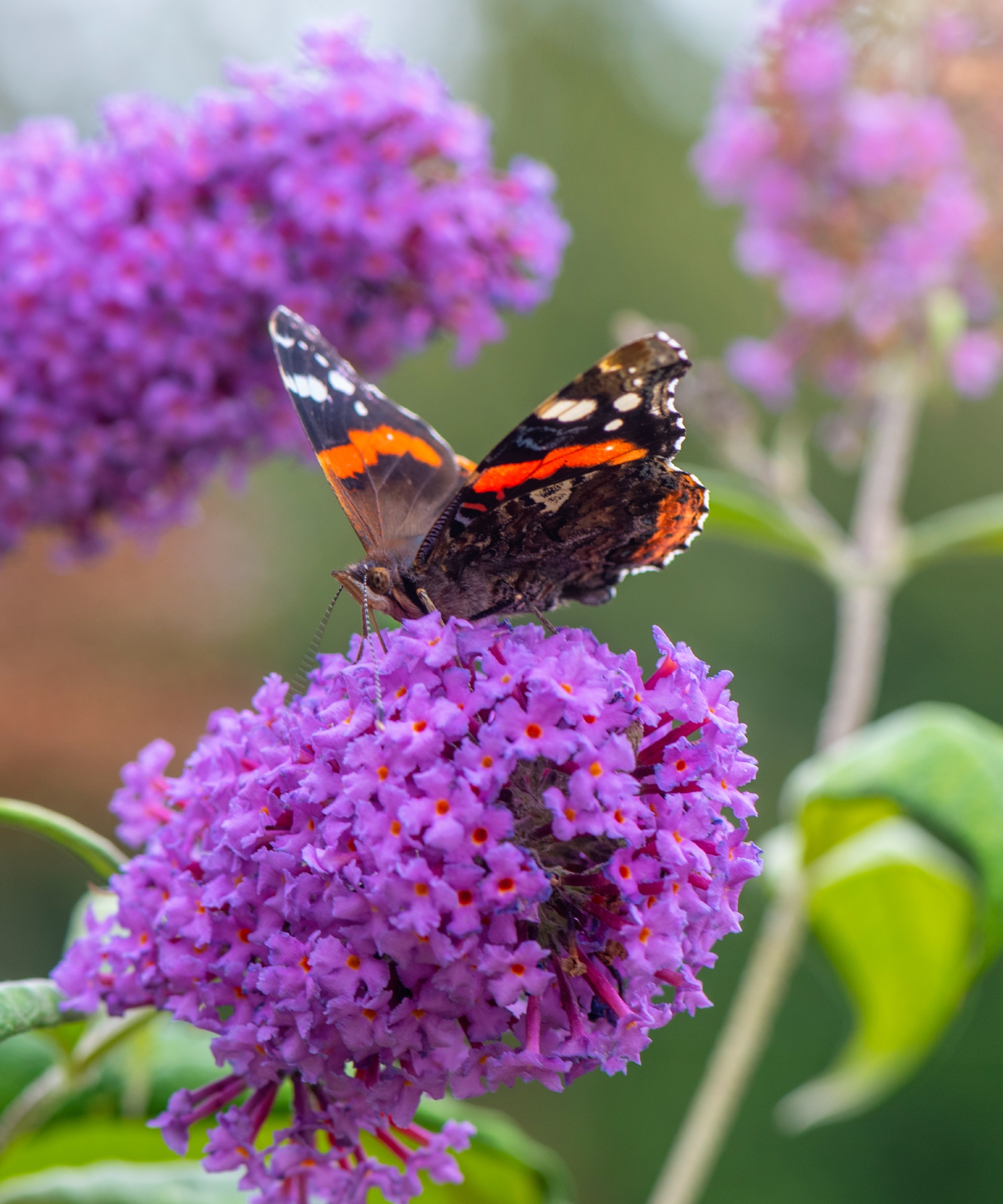
Similar to my addition of bamboo, I'm not sure butterfly bush or buddleia is an obvious choice as one of the best plants for mental health. However, it has made the list for one reason: butterflies. As a child we always had butterfly bushes growing in our backyard - my father used to point at them and proudly declare it was 'butterfly world' for the number of tortoiseshell and red admiral butterflies they would attract.
Attracting bees, butterflies and other pollinators to your garden isn't just beautiful to look at and an instant mood-booster, it's also hugely beneficial to your local ecosystem. Knowing you are making a positive impact on the health and biodiversity of your yard is very gratifying.
It's important to cut back buddleia every year, as these shrubs are fast growing and can get out of control if not contained. It is hardy in US hardiness zones 5-10.
Also try: There are many more plants to create a butterfly garden, such as Acslepia and sunflowers.
7. Lemon balm
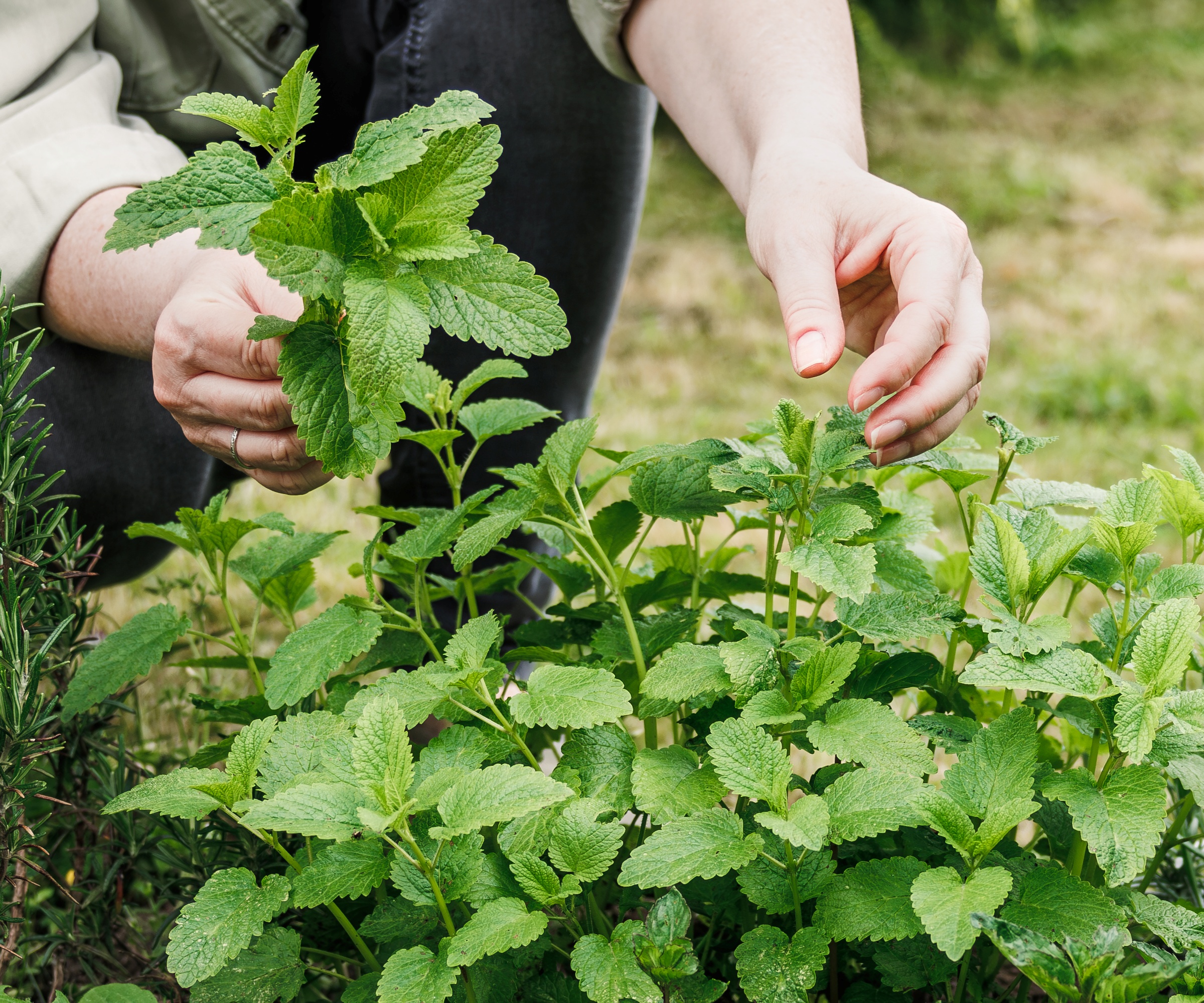
I had little choice but to bookend my list of the best plants for mental health with herbs. There are too many to choose from and they all have incredible health and mind-boosting properties.
Lemon balm is a favorite of mine. It is easy to grow, even in a container, making it one of the best choices for a balcony herb garden. I cultivate my crop in a large pot - I also have it right by the front door, next to the lavender, for ease of picking. Once established it will grow long, lush stems, which smell uplifting and zesty when crushed, or steeped in warm water to create your own herbal tea.
You can find lemon balm starter plants at Walmart, which are hardy in zones 4-9.
Also try: Mint and lemon thyme for making herbal teas and adding to cakes.
Ultimately, this is a list of my own favorite plants for mental health, and yours might contain completely different plants that evoke feelings of joy or calm for you. It’s about finding plants that make you happy. If you don’t have a garden, there are also lots of mood-boosting houseplants you can grow indoors, which are known to purify air, aid sleep, and produce calming fragrances.







